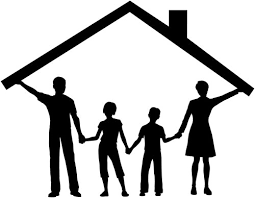The Role of Family in Social Control

The family plays a crucial role in social control by shaping individuals' behaviors, values, and norms from a young age. As the primary unit of socialization, the family influences how individuals interact with society and conform to its expectations. Here are several key roles the family plays in social control:
1. Primary Socialization
The family is the first and most important agent of socialization, providing the initial context in which children learn societal norms and values.
- Teaching Norms and Values: Parents and other family members instill basic norms and values, such as respect, honesty, and responsibility.
- Modeling Behavior: Family members serve as role models, demonstrating appropriate behaviors and attitudes that children are likely to imitate.
2. Establishing Rules and Expectations
Families establish rules and expectations that guide behavior within the household and in broader social contexts.
- Behavioral Guidelines: Families set and enforce rules regarding behavior, such as manners, communication, and respect for authority.
- Consequences for Deviance: Families implement disciplinary measures, such as time-outs, restrictions, or discussions, to correct deviant behavior and reinforce compliance.
3. Emotional and Psychological Support
Families provide emotional and psychological support, which is essential for developing self-regulation and conformity to social norms.
- Attachment and Bonding: Strong emotional bonds with family members foster a sense of security and belonging, which encourages adherence to family and societal norms.
- Self-Esteem and Confidence: Supportive family environments help build self-esteem and confidence, enabling individuals to navigate social expectations effectively.
4. Transmission of Cultural Traditions and Practices
Families pass down cultural traditions, practices, and beliefs that reinforce social norms and values.
- Cultural Heritage: Families teach children about their cultural background, traditions, and practices, helping them understand their identity and place in society.
- Rituals and Ceremonies: Participation in family rituals and ceremonies reinforces shared values and strengthens social cohesion.
5. Social Roles and Identity Formation
Families help individuals develop social roles and identities that align with societal expectations.
- Gender Roles: Families often teach and reinforce traditional gender roles, influencing individuals' perceptions of their roles in society.
- Social Roles: Families guide children in understanding their roles within the family and the broader community, such as being a student, sibling, or friend.
6. Economic Support and Social Stability
Families provide economic support and stability, which is crucial for maintaining social order and control.
- Economic Resources: Families offer financial support, ensuring that basic needs are met and enabling individuals to focus on adhering to social norms.
- Stability and Security: Stable family environments contribute to social stability by reducing the likelihood of deviant behavior and promoting conformity.
7. Intergenerational Transmission
Families play a key role in the intergenerational transmission of values, norms, and social status.
- Inheritance of Social Status: Families often pass on social status, educational opportunities, and economic resources, perpetuating social stratification.
- Continuity of Values: Families ensure the continuity of societal values and norms by transmitting them from one generation to the next.
8. Conflict Resolution and Problem-Solving
Families teach conflict resolution and problem-solving skills, which are essential for maintaining social harmony and control.
- Negotiation and Compromise: Families provide a context for learning negotiation and compromise, helping individuals navigate social conflicts.
- Coping Strategies: Families teach coping strategies for dealing with stress and adversity, promoting resilience and conformity.
9. Support for Formal Social Control
Families often support and reinforce formal social control mechanisms, such as education and legal systems.
- Educational Support: Families encourage and support educational attainment, reinforcing the norms and values taught in schools.
- Law Abidance: Families teach respect for laws and legal authorities, supporting the formal mechanisms of social control.
In summary, the family plays a vital role in social control by providing the foundational socialization that shapes individuals' behaviors, values, and identities. Through teaching norms and values, establishing rules, providing emotional support, and reinforcing cultural traditions, families ensure that individuals conform to societal expectations and contribute to social stability and cohesion.
Thank you,
